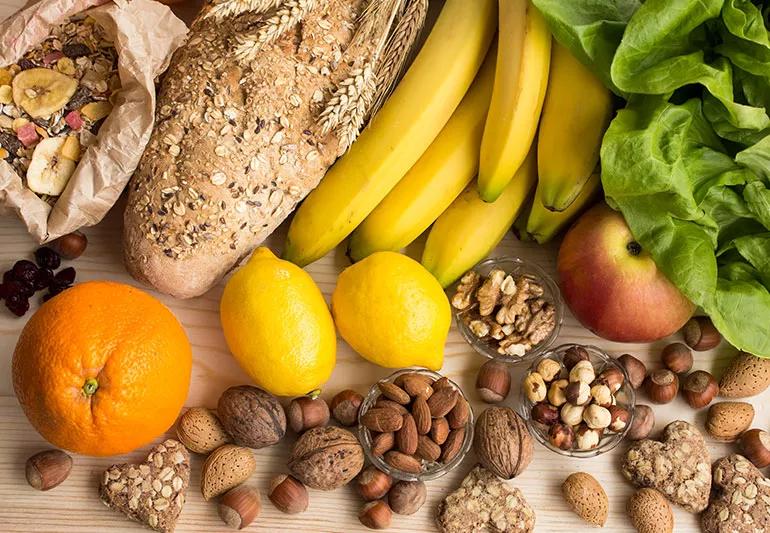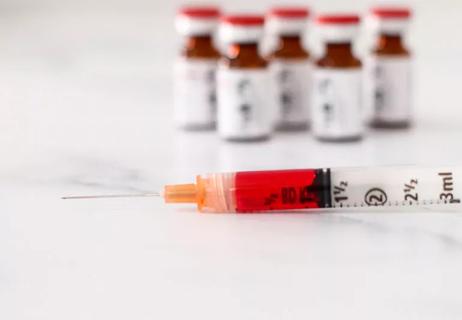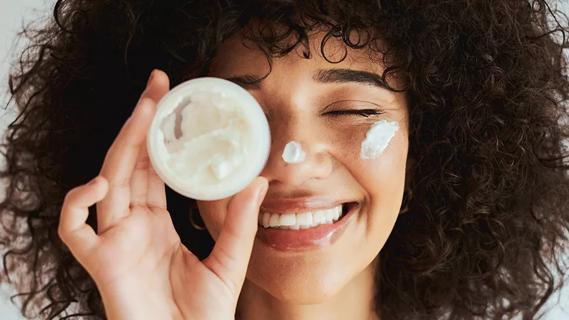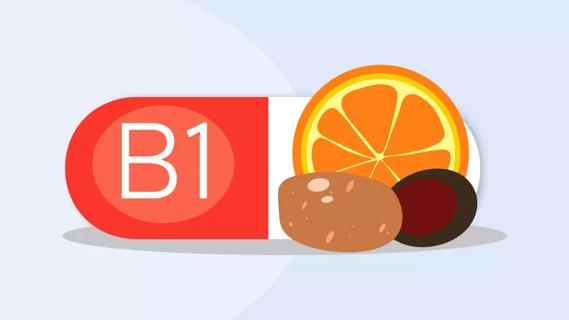Make sure you’re getting enough of the vitamin from the foods you eat

You may have heard of folate. But what is it? And why should you make sure you’re getting enough of it?
Advertisement
Cleveland Clinic is a non-profit academic medical center. Advertising on our site helps support our mission. We do not endorse non-Cleveland Clinic products or services. Policy
The B vitamin, found naturally in food, aids in making DNA and other genetic material. It’s also key in helping cells divide. Folic acid, which is found in supplements and fortified foods, is the synthetic version of folate.
A recent study also found that there’s a possible link between folate and the prevention of Alzheimer’s disease. Results show that folate levels of individuals with Alzheimer’s were lower compared with those who didn’t have the neurodegenerative disease.
More studies are still needed to confirm whether there’s a true cause and effect at play. But with more than 6 million Americans living with Alzheimer’s disease, this research suggests that getting the recommended daily amount of folate, which is 400 mcg, could reduce the risk of Alzheimer’s.
“Low levels of folate slightly increase the risk for Alzheimer’s disease,” says neuropsychiatrist Aaron Ritter, MD. “The benefits of folate can best be explained as lowering inflammation in the brain.”
Folate is necessary for maintaining good health throughout your life. Though rare in the general population, certain individuals may develop a folate deficiency:
Advertisement
Getting enough folate each day has its benefits. Here are a few:
A study shows that getting more folate can lead to lower blood pressure and lower risk of cardiovascular disease later in life.
Homocysteine, an amino acid that is created when proteins begin to break down, can harden arteries increasing your risk for heart attacks and stroke. But folate lowers homocysteine levels.
During the first few months of pregnancy, neural tube defects (NTDs) like spina bifida can occur. Low levels of folate and vitamin B12 have been shown to increase the risk of NTDs.
“Folate is really important for neurodevelopment in the uterus by closing off the neural tube and helping your fetus’s brain, skull and spinal cord develop,” says Dr. Ritter. “At the basic level, folate is one of the most important vitamins for helping grow the nervous system.”
If you’re pregnant or planning on conceiving, it’s important to take a prenatal vitamin that includes folic acid.
The cause of age-related macular degeneration (AMD), an eye disorder that affects your central vision, isn’t fully understood. While inflammation and oxidative stress can play a role, it’s also thought that elevated levels of homocysteine may contribute as well.
A study shows that taking 2,500 mcg of folic acid a day can reduce the risk of AMD by up to 40%.
Dr. Ritter says folate is great for brain health and that more research is still needed to prove exactly if and how the B vitamin can help prevent Alzheimer’s disease.
“We think Alzheimer’s disease is caused by a couple of different proteins that get misfolded and accumulate in the brain,” says Dr. Ritter. “Folate has been shown to reduce neurofibrillary tangles (abnormal accumulations of a protein called tau) and lessen amyloid protein.”
Folate is naturally found in foods, so the best way to get more of the B vitamin is to eat a diet rich in folate. It’s recommended that all adults get 400 micrograms of folate per day. Those who are pregnant should aim for 600 to 1,000 micrograms a day.
In the U.S., foods like cereal, flour and bread are fortified with folic acid to prevent folate deficiency. For foods naturally high in folate, try adding the following to your diet:
If you think you have a folate deficiency, your doctor may ask about symptoms like fatigue and unexplained weakness before ordering a blood test.
Advertisement
Folate is more likely to be converted in the body when you consume the vitamin naturally in foods. Be careful with how much folic acid (the form of folate that’s found in supplements) you consume as it’s been noted to cause stomach cramps, diarrhea, insomnia and nausea.
With ongoing research on how folate may help prevent Alzheimer’s disease — in addition to all the other benefits of it — having a well-balanced diet that includes your recommended daily allowance of folate can be beneficial.
“This new data provides further evidence that eating a nutritious and well-balanced diet is one of the keys toward preventing Alzheimer’s disease,” Dr. Ritter says. “It also tells healthcare providers that we need to be diligent in looking for folate deficiency in certain patient populations.”
Advertisement
Learn more about our editorial process.
Advertisement

Though it was once used as a cholesterol-lowering medication, niacin is no longer a recommended treatment

Some protein-containing foods are known to be good sources of biotin — but there are also likely other foods that just haven’t been studied yet

This essential nutrient helps convert food into energy, but don’t expect wonders for your nails and hair

This important B vitamin has benefits for your heart, brain and skin

Taking supplements with biotin can cause inaccurate lab test results

If you have low B12 or a true deficiency, these shots can work wonders

Pantothenol is a powerful moisturizer and can help repair damaged skin and hair

Getting enough thiamine in your diet can protect your heart, brain and nervous system

Wearing a scarf, adjusting your outdoor activities and following your asthma treatment plan can help limit breathing problems

Your diet in the weeks, days and hours ahead of your race can power you to the finish line

When someone guilt trips you, they’re using emotionally manipulative behavior to try to get you to act a certain way